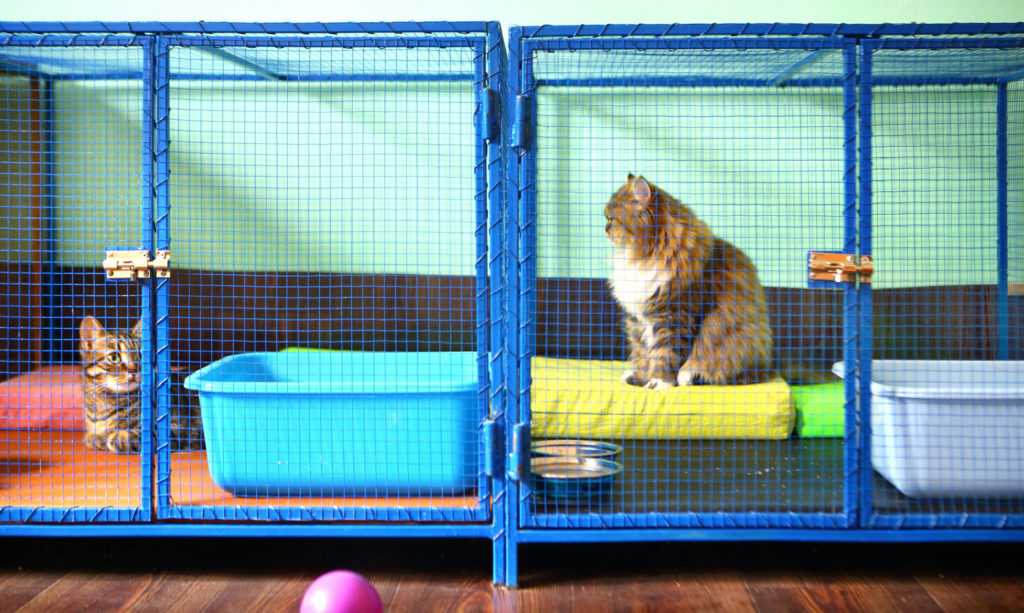Cats are such independent creatures that they can often get along without their service staff (you) for a few hours each day. However, there are times and conditions that warrant day-long care, such as cats who are elderly and need some assistance or those who need medications, kittens, or a pet with separation issues. Yet you may not want to give a sitter access to your home.
Most likely you have done the research of looking for a nearby place, checked references and made some choices. Now it’s time to visit them in person. What should you look for? Competence and caring.
Many veterinary hospitals have some limited space for short term stays. If you have a good relationship with your vet’s office they may gladly take your cat in on a daytime or overnight basis if this is infrequent. Besides, it’s a great time for grooming and the annual checkup.
A non-veterinary boarding and/or daycare center should be clean and bright. Employees should welcome you right away and give a full tour of the facilities by authorized personnel if you request it. Are the staffers pleasant and eager to offer information? Do they charge per stay or per month? Do they also have grooming?
What is their training and certification? Is the business certified, licensed and insured? Cat daycare and overnight boarding require different certification. What certification does this facility have? How often do they check medical records to make sure vaccinations are up to date and no one brings in an illness? Where are medications kept and how will they be administered? Will they call you immediately if your cat seems to have a problem? Will they take the cat to your vet, or do they have a vet on-site or on call?
What is their physical and video monitoring security like? How do they ensure that your cat will not stray outside or be stolen? How do they make sure that only you or someone you have designated will check your cat out of the facility every day? How will they make sure they have the right cat? Are there security cameras to watch the pets at all times?
Do they use pheromone dispensers to help calm the cats? Are dogs kept far away so they will not be on guard all day? How are dog smells kept away from the cat area?
Are the cat cubbies fairly large, comfortable, have more than one level, and have access to windows so they can see what is happening outside and inside? How often are the pets fed and played with, especially with time to get out of the cubbies and stretch or have time for interaction? How many cats typically stay at the facility? Do the caretakers talk to them often and kindly? How is poor behavior admonished?
If you have two cats, will they be allowed to stay in one cubby together? Can your cat see other cats from their location?Boarding/daycare centers that are national chains have to follow corporate standards, plus national as well as state regulations. They will adhere to structure and policy which has been well-tested. The environment will probably be more lavish because there is more money to spend.
Some local commercial boarding/daycare places in Atlanta have a celebrated reputation for passionate attention to the comfort and needs of their furry clients, so don’t rule out independent care.
A fifth alternative to a sitter, the vet, a chain or an independent is home boarding/daycare by either caring sitters or a certified professional. Your elderly cat may appreciate a home setting and the special attention of a dedicated care giver. If you have to leave them overnight, the sights and smells of a home environment will be comforting. As always, check for safety, competence and caring. Get lots of references.
What is your general feeling about a place after your tour? What do your senses tell you? Watch how the animals at each place respond to their caretakers. Are they happy and active, lonely or irritable? Listen with your eyes to what the animals have to “say”.

